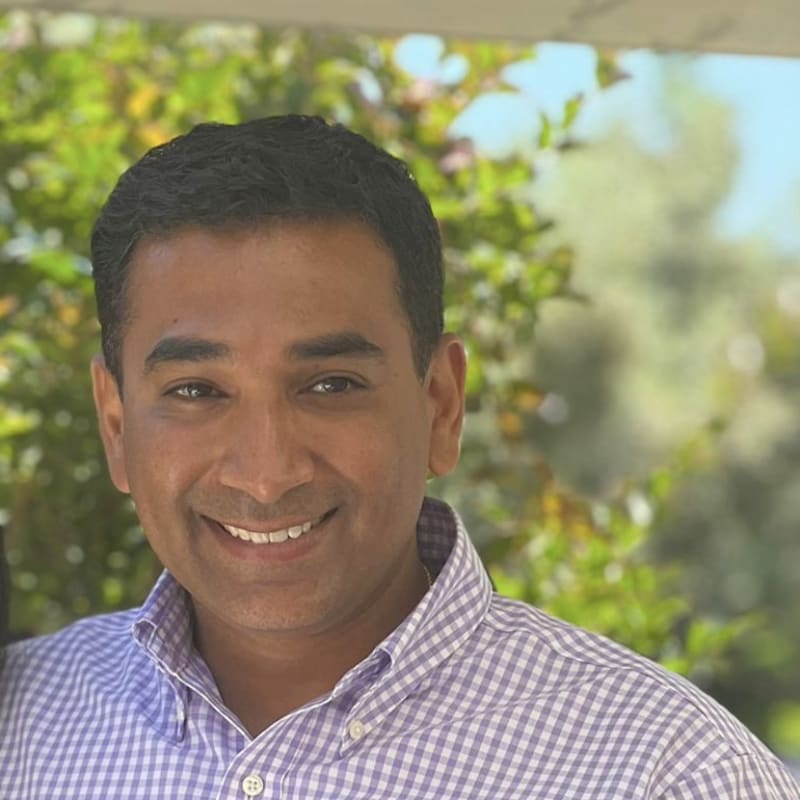What Does a Chief Data Officer Do? (Roles, Salary, How to Hire)
Discover what a Chief Data Officer (CDO) is, key responsibilities, skills and experience needed, and salary. Also, find out the best way to hire a CDO.
A Chief Data Officer (CDO) is a senior executive responsible for how an organization collects, utilizes, and governs data to supercharge business growth.
This is a relatively new role among C-suite executives that has catapulted from backroom analytics to front-line strategy.
What exactly does a CDO do to provide business value?
What skills and experience do they need?
This article has all the details you should know – whether you’re a candidate looking for a CDO role or a hiring manager considering hiring one. (We’ll also tell you the best way to hire talented CDOs.)
Further Reading:
Want to hire a CFO? Here’s all you need to know about CFO roles, salary ranges, and how to hire them.
Find out what questions to ask in a CMO interview to spot the right candidate.
How Has the CDO Role Evolved Over the Years?

The role of the CDO has come a long way, keeping pace with the growing importance of organizational, customer, and market data.
In the 2000s, chief data officers primarily focused on data governance and security. This meant ensuring data accuracy, establishing access protocols, and preventing breaches. It was more of a risk management (defensive) role.
Things shifted in the 2010s with the realization that there was gold in all that data. CDOs became involved in data analytics, helping organizations use data to make strategic decisions. This was a more “offensive” role, all about extracting more business value from data.
Due to the immense value CDOs contributed, the number of organizations that hired them jumped from 12% to 74% between 2012 and 2022. (NewVantage Partners Data and AI Leadership Executive Survey 2022)
What does a Chief Data Officer do today?
Today’s CDO balances defense with offense. Besides handling governance and compliance-related activities, the CDO role also involves driving digital transformation and data-driven business growth. It now spans:
- Data governance
- Data strategy
- Data democratization
- Data monetization
- Data ethics
The role is shifting dramatically. The rise in popularity of AI and Large Language Models (LLMs) is one of the big drivers for that, as companies prioritize AI features to stay competitive.
In short, the CDO has a huge impact on today's business with huge opportunities for data-driven leadership in the future.

- Leadership
- Hiring
- Project Management
- Advisor
Veteran SWE manager, TLM, and leadership coach.
What Are the Key Responsibilities of a Chief Data Officer In 2024 & Beyond?

Below are the 13 multifaceted roles and responsibilities of a CDO – from strategy and leadership to analytics and governance:
1. Lead Data Strategy Development and Execution
A CDO analyzes business goals, identifies how data can support them and implements data processes and analytics to support these goals. This drives informed decision-making, operational efficiency, and better customer experiences, giving you a competitive edge in the market.
2. Lead and Develop The Data Team
They hire and mentor skilled professionals (including data scientists and data engineers) to create a data-driven culture that drives innovation and achieves the company's objectives.
3. Drive Data Analytics and Business Intelligence
A CDO uses data analytics and business intelligence tools to analyze company data, uncovering insights that inform strategic decisions. They may use data architecture approaches like data meshes and lakes for real-time analytics to respond to customer needs and operational issues in an agile manner.
4. Integrate Artificial Intelligence (AI) and Machine Learning (Ml) Into Operations
They embed generative AI and ML into operations to uncover deeper insights from data for business growth. They find the right use cases, craft guidelines for responsible usage, and monitor information security and bias mitigation.
As per a 2024 Informatica CDO survey of 600 chief data officers, 45% have already implemented generative AI, and another 54% plan to do so.
5. Lead Data Governance and Compliance
A CDO establishes policies that manage big data access, accuracy, and legality so that data usage complies with laws and regulations, protecting your company and its customers.
6. Oversee Data Privacy, Security, and Risk Management
They create and enforce policies to safeguard data privacy and information security. They also manage risks by monitoring for threats and vulnerabilities, ensuring your organization's and customers' data is protected.
7. Ensure Data Quality and Integrity Across the Organization
A CDO ensures that data across the company is accurate and consistent, continuously monitoring and improving it.
8. Manage and Innovate With Data Technology Solutions
They oversee and update data technologies – like databases and analytics software – to meet business needs. They explore new data solutions to improve analysis, security, and decision-making processes as well.
9. Innovate With Data to Create New Business Models and Revenue Streams
A CDO uses data insights to develop innovative strategies to drive business growth. For instance, they may create subscription services based on personalized user data leading to new revenue sources and market opportunities.
10. Build Partnerships With Data Vendors and Tech Providers
A CDO builds partnerships with data vendors and technology providers to access data assets for market analysis and tools like Tableau for advanced data visualization.
11. Spearhead Ethical Data Use and Fairness in Data Practices
They implement responsible data collection and usage policies. They also promote fairness in algorithms to avoid bias, like ensuring artificial intelligence recruiting tools don't discriminate based on gender or ethnicity.
12. Engage Stakeholders and Facilitate Cross-Departmental Data Collaboration
A CDO encourages sharing insights and resources among different departments. For instance, this will help align marketing and sales teams to optimize customer engagement strategies.
13. Promote Data Literacy
A CDO may develop training programs (for example, an online course on data science and analysis) to enhance employees' ability to interpret and use data effectively.

- Machine Learning
- Fractional CTO
- Data Science Leader
- Data Science
Data Science & Machine Learning Expert | 2x Founder | Fractional CTO | Startup Advisor
The responsibilities mentioned above apply generally to CDOs working in the private sector. A federal CDO’s role and responsibilities may differ slightly.
What Is a Federal CDO?
A federal CDO is a senior executive responsible for overseeing the management, governance, and strategic use of agency data within United States federal government agencies.
Here’s how their role differs from a CDO in the private sector:
- They have broader responsibilities, including agency data policy development and compliance with federal standards like the Foundations for Evidence-Based Policymaking Act (Evidence Act) of 2018. They advocate for open data initiatives, which enhance transparency and public access to government data.
- They face more complex regulatory environments and budget constraints and have to coordinate efforts with the Federal Privacy Council.
- Their role is particularly critical in sectors like financial services, where they contribute to the integrity and security of financial data, supporting the efficiency of financial markets.
- They also must engage with various stakeholders, including other federal government agencies, entities like the Evaluation Officer Council, Congress, and the public.
How Does a CDO Differ from a CIO, CTO, and CAO?
The roles of a CDO, Chief Information Officer (CIO), Chief Technology Officer (CTO), and Chief Analytics Officer (CAO) may sound similar.
Some companies may even have a Chief Digital Officer. (That’s a “CDO” as well.)
However, each of these roles addresses distinct aspects of technology, data management, and analytics in the digital business environment.
~~Here’s how they differ:~~
| Role | Responsibilities & Strategic Focus | Nature of Data | Broad Skill Set |
| Chief Data Officer | Manage, govern, and use data as a strategic asset to drive business strategy and innovation | Primarily structured and unstructured data | Data management, analytics, business strategy |
| Chief Information Officer | Oversee IT infrastructure, and ensure technology meets current and future needs for optimal operational efficiency | Operational data, and IT system data management | IT management, strategic IT planning, cybersecurity |
| Chief Technology Officer | Lead tech innovation, evaluate and implement new systems and infrastructure | Emerging technologies, and R&D data | Tech foresight, innovation management, R&D leadership |
| Chief Analytics Officer | Oversee the analytics strategy, transform data into actionable insights to drive business strategy | Data for analytics (customer behavior, operational efficiency, etc.) | Data analytics, statistical analysis, business strategy |
| Chief Digital Officer | Drive digital transformation initiatives and enhance customer engagement through digital channels to capture market share | Customer interaction data via digital platforms | Digital marketing, customer experience design, digital project management |

- Fractional Data Scientist
- Advisor
- Leadership
- Team Building
I am a Data and Analytics leader with 15 years of experience building data functions and driving revenue in Finance, D2C and B2B technology industries.
What Skills, Experience, & Qualifications Does a Chief Data Officer Need?
A CDO must be equipped with the following skills and experience to succeed in their role:
- Data management and analytics experience
- Expertise in creating data pipelines and building models used in production
- Understanding of data privacy regulations
- Experience completing audits for data compliance
- Knowledge of data governance frameworks
- Data science skills, including data modeling and proficiency in R and Python
- Strong statistical and mathematical abilities
- Knowledge of AI, ML, and natural language processing (NLP)
- Experience building business intelligence dashboards
- Business acumen and the ability to align data strategy to business objectives
- Strong communication and interpersonal skills
- Problem-solving and critical thinking abilities
- Leadership experience managing data teams
- Change management and organizational transformation
- Project management experience
- Ability to collaborate across business units and disciplines

- Team Building
- Leadership
- Machine Learning
- Statistical Analysis
Experienced people leader growing Data Scientists to do the most impactful work of their careers
So, how do you become a CDO?
You typically need the following qualifications to become a Chief Data Officer:
- A bachelor’s degree in computer science, information technology, or a related field. Many chief data officers hold higher education degrees such as a Master's, Ph.D., or MBA with a focus on data science, big data analytics, or business intelligence.
- Relevant experience in data science, data governance, digital transformation, information technology management, or a related field – often requiring years of progressing through roles with increasing responsibilities.
- Professional certifications in data management, data governance, or related areas
Now, let's look at the three ways in which organizations can hire for a CDO role.
3 Types of Chief Data Officer Hiring Models
While organizations typically look for full-time chief data officers, other options, such as fractional or interim CDOs, offer flexible and effective solutions for data-related challenges.
Here’s how these hiring models differ:
- Fractional CDO: A seasoned executive who offers data leadership to one or more organizations on a part-time basis. The fractional CDO earns a monthly retainer from each organization, giving them flexibility and diverse experiences. This model is cost-effective for companies that don't need a full-time CDO but require strategic expertise.
- Full-time CDO: A full-time employee responsible for leading all data-related initiatives, developing data strategies, and overseeing data governance and analytics on a day-to-day basis. They earn a full salary and benefits package, including bonuses and equity, which can be pretty expensive for some companies.
- Interim CDO: An interim CDO is brought in temporarily to address specific data-related challenges, such as a leadership gap, organizational change, or a critical data project. Some interim chief data officers may be hired on a contract basis and receive a salary that reflects their temporary status. Meanwhile, others may negotiate a compensation package similar to that of a full-time CDO for the duration of their role.

- Product Strategy
- Technology Strategy
- Product Innovation
- Leadership
Innovation & Technology Strategy | Apple, Unicorns | AI/ML, SaaS, B2B, Data Platforms, Digital Transformation
The CDO’s Reporting Structure & Collaboration Dynamics

Depending on the organization's structure, a CDO may report to the CEO, CIO, or the CTO.
- They collaborate with the Chief Information Officer and the Chief Technology Officer to drive the digital transformation agenda.
- They work closely with senior executives like the Chief Marketing Officer (CMO), Chief Financial Officer (CFO), and Chief Operations Officer (COO) to align data initiatives with business goals.
- They work with data scientists, analysts, and IT professionals to ensure effective data management and governance.
- They may also engage with legal and compliance teams to ensure adherence to data privacy regulations and industry standards.
How Much Do Chief Data Officers Make? (Salary Range)
Full-time CDOs with 7-9 years of experience in the United States earn between $260,000 - $484,000 annually. This includes bonuses and additional incentives apart from the base salary. (Factors like industry, company size, and location influence these figures.)
Meanwhile, as we saw above, fractional CDOs offer their expertise to one or more companies part-time and are paid a monthly retainer salary from these companies.
This lets them accumulate a substantial annual income from multiple sources.
For instance, through a fractional hiring platform like Go Fractional, a fractional CDO can earn $10,000-$25,000 a month ($120,000-$300,000 annually) from one fractional assignment. It offers diversity, flexibility, and networking opportunities not always available in a full-time CDO role.
This is a cost-effective way for organizations to hire seasoned data leaders easily.

Hire an Experienced Fractional CDO through Go Fractional
Through Go Fractional, you can easily hire seasoned data leaders on a part-time or fractional basis.
They have a proven track record working at successful companies, including using business intelligence for data-driven decisions and leveraging AI and ML to develop products.
What are the benefits of hiring a CDO through Go Fractional?
- You get candidates with decades of experience at a fraction of the cost of hiring a full-time CDO and no equity hit.
- You save on payroll taxes, healthcare premiums, paid leave, hardware expenses, and more.
- You get access to a top-tier talent pool that has already solved the exact problem you are working on.
- You don’t have to convince the executive to join full-time. Our fractional talent can start working for you this week.
- We are entirely transparent about our rates.
- We have a strict application and interview process.
- You don’t have to worry about the admin and recruiting formalities. We’ll handle that.
- Once the contract is signed, you will work directly with the fractional talent.
- You pay a monthly retainer with a 30-day notice both ways.
Guaranteed, this is the easiest way to hire seasoned, fractional data officers.
Going fractional with the right CDO may often yield results exceeding those of even the top full-time employees.
So, what should you do next?
Create a new job opening on Go Fractional, and we’ll take care of the rest.